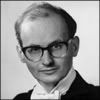Another view of Stalinby Ludo Martens
Pyatakov in Berlin
During the January 1937 Trial, Pyatakov, the old Trotskyist, was convicted as the most highly placed person responsible of industrial sabotage. In fact, Littlepage* actually had the opportunity to see Pyatakov implicated in clandestine activity. Here is what he wrote:
`In the spring of 1931 ..., Serebrovsky ... told me a large purchasing commission was headed for Berlin, under the direction of Yuri Piatakoff, who ... was then the Vice-Commissar of Heavy Industry ....
`I ... arrived in Berlin at about the same time as the commission ....
`Among other things, the commission had put out bids for several dozen mine-hoists, ranging from one hundred to one thousand horse-power. Ordinarily these hoists consist of drums, shafting, beams, gears, etc., placed on a foundation of I- or H-beams.
`The commission had asked for quotations on the basis of pfennigs per kilogramme. Several concerns put in bids, but there was a considerable difference --- about five or six pfennigs per kilogramme --- between most of the bids and those made by two concerns which bid lowest. The difference made me examine the specifications closely, and I discovered that the firms which had made the lowest bids had substituted cast-iron bases for the light steel required in the original specifications, so that if their bids had been accepted the Russians would have actually paid more, because the cast-iron base would be so much heavier than the lighter steel one, but on the basis of pfennigs per kilogramme they would appear to pay less.
`This seemed to be nothing other than a trick, and I was naturally pleased to make such a discovery. I reported my findings to the Russian members of the commission with considerable self-satisfaction. To my astonishment the Russians were not at all pleased. They even brought considerable pressure upon me to approve the deal, telling me I had misunderstood what was wanted ....
`I ... wasn't able to understand their attitude ....
`It might very well be graft, I thought.'
John D. Littlepage and Demaree Bess,
In Search of Soviet Gold (London: George E. Harrap & Co., 1939)
During his trial, Pyatakov made the following declarations to the tribunal:
`In 1931 I was in Berlin of official business .... In the middle of the summer of 1931 Ivan Nikitich Smirnov told me in Berlin that the Trotskyite fight against the Soviet government and the Party leadership was being renewed with new vigour, that he --- Smirnov --- had had an interview in Berlin with Trotsky's son, Sedov, who on Trotsky's instruction gave him a new line ....
`Smirnov ... conveyed to me that Sedov wanted very much to see me ....
`I agreed to this meeting ....
`Sedov said ... that there was being formed, or already been formed ... a Trotskyite centre .... The possibility was being sounded of restoring the united organization with the Zinovievites.
`Sedov also said that he knew for a fact the Rights also, in the persons of Tomsky, Bukharin and Rykov, had not laid down their arms, that they had only quietened down temporarily, and that the necessary connections should be established with them too ....
`Sedov said that only one thing was required of me, namely that I should place as many orders as possible with two German firms, Borsig and Demag, and that he, Sedov, would arrange to receive the necessary sums from them, bearing in mind that I would not be particularly exacting as to prices. If this were deciphered it was clear that the additions to prices that would be made on the Soviet orders would pass wholly or in part into Trotsky's hands for his counter-revolutionary purposes.'
People's Commissariat of Justice of the U.S.S.R. Report of Court Proceedings in the Case of the Anti-Soviet Trotskyite Centre (Moscow, 1937), pp. 21--27.
Littlepage made the following comment:
'This passage in Piatakoff's confession is a plausible explanation, in my opinion, of what was going on in Berlin in 1931, when my suspicions were roused because the Russians working with Piatakoff tried to induce me to approve the purchase of mine-hoists which were not only too expensive, but would have been useless in the mines for which they were intended. I had found it hard to believe that these men were ordinary grafters .... But they had been seasoned political conspirators before the Revolution, and had taken risks of the same degree for the sake of their so-called cause.'
Littlepage and Bess, op. cit. , p. 102.
* John D. Littlepage, American mining engineer, contracted to conduct an inspection of the Urals copper mines.

"All issues are political issues, and politics itself is a mass of lies, evasions, folly, hatred and schizophrenia" Orwell
E l/r -10 : L/A -7.64


















 - By wat0n
- By wat0n